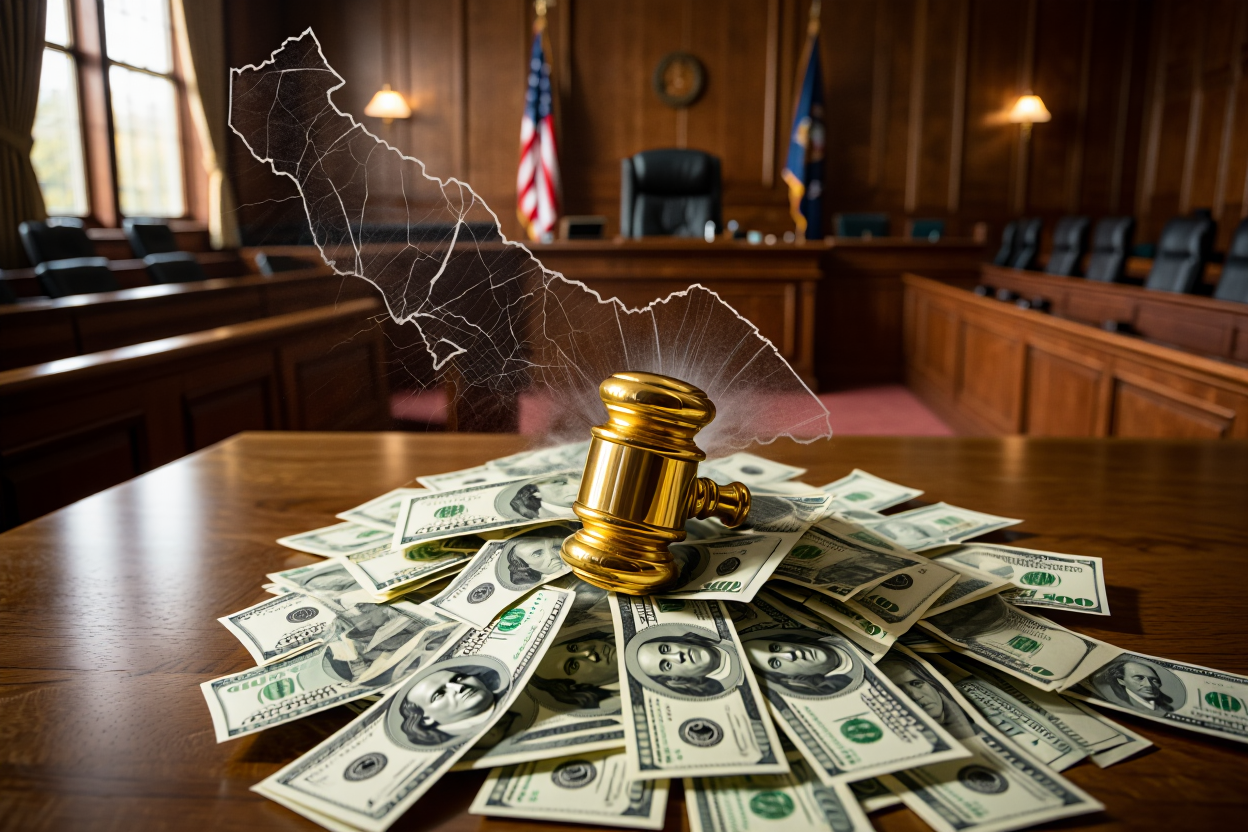OPINION
BREAKING NEWS in New York Times: Companies Rely on Delaware Courts. Lawyers Reap Huge Fees There! Shocking!
Dear Friends,
HUGE BREAKING NEWS, FOLKS! Andrew Ross Sorkin of the New York Times (and CNBC-TV) is writing about a new study making the rounds in corporate boardrooms suggesting “Delaware’s judiciary has created a veritable fee machine for lawyers!” Just what I’ve been saying for YEARS!
It’s a cryonistic, I scratch-your-back-you-scratch-mine, inscestuous system where the judges and attorneys work trading favors, as I see it, and now Andrew Ross Sorkin is pointing out others are seeing this too. So much so, that many are alarmed and Delaware’s once-upon-a-time esteemed status as the “preferred incorporation haven” is being questioned by much fancier folks than me! I think the state’s incorporation status has ALREADY crumbled, but this is the cherry on top! Corporate America isn’t fooled any longer.
See the New York Times piece below. I’ve been blowing this whistle for so long that my lips are bleeding! Media from Politico to Law360 have been echoing what I’ve said for the past couple of years. Andrew Ross Sorkin and the New York Times are next level in my book!
What do you think of Delaware’s incorporation status? How bad is it?? Please share your feedback, folks. It is always welcome and appreciated.
Respectfully Yours,
JUDSON Bennett-Coastal Network
Companies Rely on Delaware Courts. Lawyers Reap Huge Fees There.
A new study found that courts in the state, where many big companies reside, often cleared big payouts to lawyers. It may further embolden the state’s critics.
By Andrew Ross Sorkin Bernhard Warner Sarah Kessler Michael J. de la Merced and Danielle Kaye
June 2, 2025
Updated 10:09 a.m. ET
Andrew here. To kick off the week, I’ve been digging into a new study quietly making its rounds in corporate boardrooms. The analysis suggests Delaware’s judiciary has created a veritable fee machine for lawyers, raising pointed questions about the state’s long-held status as the preferred incorporation haven.
Meanwhile, investors are focused on new comments from the White House and China on the tariff battle. And my colleague Danielle Kaye has uncovered some truly counterintuitive implications within a provision in Republicans’ budget bill that limits states’ ability to regulate A.I. — with far-reaching consequences.
What are Delaware judges doing?
Delaware’s decades-long pitch to corporate America is simple: It offers predictable judges, light-touch politics and fast decisions.
But a new study making the rounds in boardrooms — and loudly promoted by the prominent venture capitalist Bill Gurley — finds reasons for Corporate America to reconsider its reliance on courts in the First State.
A fee factory? The study, by the well-known Stanford law professor Joseph Grundfest tallied every shareholder case since 2000 in which lawyers won fee “multipliers” of 7 times (“septuples”) or 10 times (“decuples”) their normal hourly rate from big corporations.
Here’s what it found:
Delaware produced 21 septuples and 14 decuples, almost matching the entire federal system on septuples and nearly triple on decuples.
This trend has increased over the past five years: Septuple fee awards have been 23 times more common in Delaware than in federal court. Decuples were 57 times more common.
One payout for a lawyer practicing before Delaware’s Court of Chancery worked out to an astonishing $35,000 an hour. Some lawyers are walking away with multipliers of 66 times their standard rates.
Just two chancery court judges handed out a majority of those supersize awards, so it matters which judge you get.
“Something is awry in Delaware and you should know the risks,” Gurley, the Benchmark Capital partner who invested in Uber, wrote on X. He has been critical of Delaware and supported what like-minded critics call DExit.
Why it matters: A Delaware judge’s decision to void Tesla’s $56 billion pay package for Elon Musk helped prompt the billionaire to persuade shareholders to redomicile the carmaker in Texas and urge other companies to follow suit. (He reposted commentary about Gurley’s post.)
Meta is now exploring a jump from Delaware to Texas or another state. Walmart has reportedly told Delaware lawmakers it, too, might exit. SpaceX already followed Tesla, and at least a dozen other companies are weighing moves to Nevada or Texas this year. (Delaware this spring enacted a new law meant to dissuade companies from leaving.)
The study’s author says he isn’t advocating a view.When I spoke to Grundfest on Sunday, he said, “I’m not drawing any inferences. I’m not telling anybody what it means. The data is the data.”
But if you know Grundfest — who has taught corporate directors how to be directors for 30 years and long weighed in on all sorts of governance issues — the study can be seen as a shot across the bow of Delaware’s activist approach.
The study has its critics, however. It’s a small sample size to begin with, said Joel Fleming, a partner at Equity Litigation Group who represents investors. Several of the cases the authors include are not actually Delaware fee awards, he said; moreover, the methodology for federal cases is different.
(Grundfest, in response to Fleming’s criticism, told me that “Even if we made all the adjustments that Fleming suggests — adjustments that are objectively unwarranted — Delaware would still remain an outlier on an empirical basis.”)
The authors undercounted the percentage of federal cases with big so-called lodestar attorneys’ fees, Brian Fitzpatrick, a law professor at Vanderbilt University who has studied class action settlements and fee awards, told DealBook.
The question for directors: Are the long-perceived governance protections of Delaware worth the latest verdicts — and the lawyer bills — when Texas or Nevada beckon?
The question for shareholders: Most companies require you to vote for them to leave Delaware. Will you?
Send us your thoughts — and let us know whether your board is discussing a DExit.

